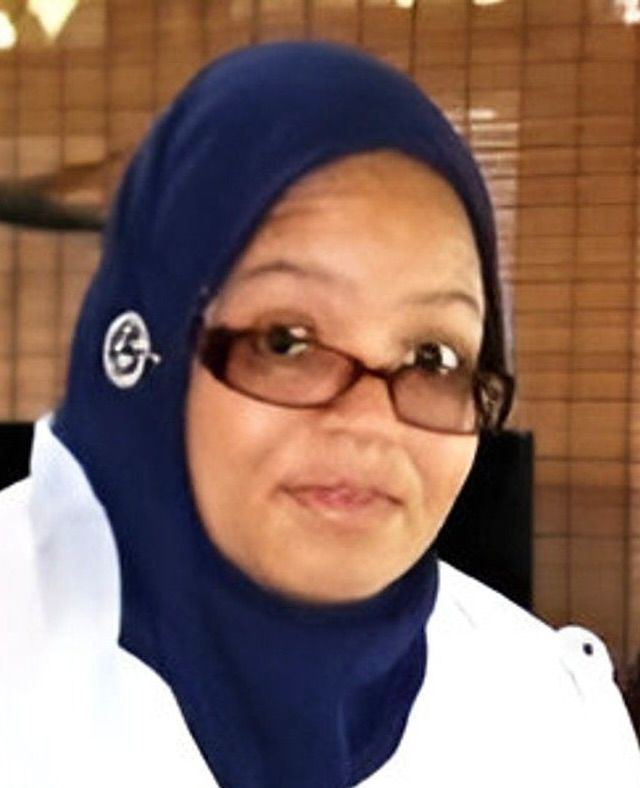Salaama Abrahams

Summary: Salaama Abrahams, a community health care worker, organises other health care workers to fight for their rights. In 2024, Abrahams was elected the national organiser of the South African Care Workers Forum, where, among other activities, she leads campaigns, recruits activists, and conducts trainings. As a result of her advocacy, Abrahams has endured limited sleep, less time with family, backlash, and threats. Despite these challenges, she has vowed to never give up on her mission.
Profile: Salaama Abrahams grew up in Bonteheuwel, South Africa, “a small but resilient community where care and solidarity were part of daily life”. She said her upbringing was deeply influenced by her foster parents, especially her mother, who taught her the values of compassion, justice, and service to others.
In 2019 Abrahams began work as a Community Health Worker (CHW), providing home-based care and support to patients in underserved communities. At this time, Abrahams developed a deeper understanding of the challenges and injustices faced by community health care workers, which inspired her to become more active in advocating for their rights. On realising that health care workers work under harsh and unfair labour conditions, she sprang into action to challenge the system.
“My journey into activism was sparked by witnessing the daily injustices and exploitation faced by care workers, especially women,” she recalls. “I could not remain silent while our dignity was being undermined. My lived experiences—of poverty, caregiving, and community service—pushed me to raise my voice, not just for myself but for others who are often silent.”
In South Africa, health care workers are often seen in the streets of communities rocked by violence distributing medicine and providing tuberculosis treatment, HIV testing, palliative care, and wound care. Despite the necessity of their work, they are seldom recognized and often exposed to risks of infection, robbery, or even a stray bullet.
In 2024, Abrahams was elected the national organiser of the South African Care Workers Forum. She brings together workers across the country; leads national campaigns for decent work, recognition, and permanent employment of community health workers; facilitates training and awareness sessions; and mobilises communities around issues of justice, gender, and economic rights.
“We have organised protests, drafted petitions, led dialogues, submitted memorandums, and engaged directly with government departments,” says Abrahams. In addition, she is aligned with the Bonteheuwel Development Forum, the Women’s Assembly Movement, and Nupsaw.
“We’ve challenged exclusion based on age and qualifications and fought for the absorption of CHWs into permanent positions,” says Abrahams. “I was also involved in organising community dialogues held across various areas on the Cape Flats, where we engaged women on themes such as healing, solidarity, and reclaiming agency in oppressive systems. These dialogues provided safe spaces for storytelling, emotional release, and building collective support networks. We also hosted political education sessions every alternative Saturday, facilitated by Tsitsimani, where we deepened our understanding of feminist theory, social justice, and movement-building. These sessions helped strengthen our collective consciousness and sharpened our advocacy tools for grassroots activism.”
Abrahams points out that her work has made an impact: “Increased public awareness, more workers asserting their rights, and government departments being held accountable. Women have found their voices again, and communities are becoming more organised and conscious of their power.”
There are, however, serious downsides to her activism: “I have sacrificed time with my family, my personal well-being, and in some cases, financial stability. Being an activist means you are always on call—for a meeting, a protest, a crisis. There are days I go with little sleep but a full heart. I’ve lost friends and faced backlash, but I remain committed because our people deserve better. . . . Speaking truth to power often comes with risks. I’ve faced threats, intimidation, and emotional stress. There have been attempts to silence or discredit me, especially when confronting government decisions or exposing corruption. But with solidarity, I continue the work. The fear does not outweigh the need for justice.”
Abrahams remains positive: “I envision a world where care work is valued, where no one is disposable because of their age, education, or background. A world where women lead with strength, communities stand in unity, and dignity is not negotiable. I dream of a just, equal, and compassionate society—rooted in people’s power and built on love and justice.”
